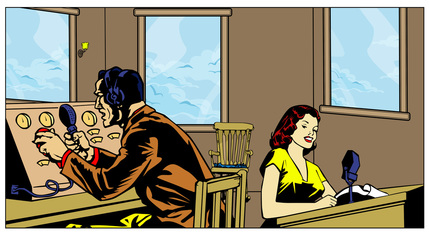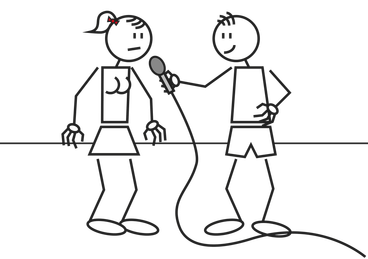|
Get the info to this super sexy video in PDF form here: https://www.onlineradioschool.com/common-mistakes.html
A simulrec is a great idea. We used them all the time at the BBC World Service. Two people talk to each other via Skype or the phone. While talking via Skype/phone, both of you also record the conversation into a high-quality microphone. So, you chat through the phone/Skype, etc.; however, both of you also record into good mics at the same time. Once the interview is over, one of you sends the other person the high-quality audio WAV/AIFF file. The other person edits both quality files together. Now, you have an interview where both people have high-quality audio, and it's not crappy audio recorded through a PC microphone.
Everything you say needs to have a beginning, middle and end. And I mean EVERYTHING! In the last 18 years, I've seen soOoOOoOoOO many presenters waffle and waffle. They think they're amazing by just 'giving it;', when in fact they're just talking cow poo. And trust me, I've heard sooooo much cow poo over the last 18 years.
Before you open your gob, know EXACTLY what you're going to say. Know how you're going to start your presenter link and MORE IMPORTANTLY know how you're going to finish it. Ask yourself this: how are you going to introduce your next item? Random waffle is baaaad; prepared speech is awesome. So, do you know what you're going to say now? Ashley While studying media law is very tedious for radio DJs and podcasters, it's probably the most important thing a radio presenter has to learn. In this post, we'll learn about defamation, libel and slander. If you guide yourself by these basic rules, you'll be ok. Just to note, I'll be repeating myself throughout this blog. My goal is to drill this information into your head. You need to understand the basics of defamation. If you don't, the chances are high that you'll open your mouth, say the wrong thing and get sued. Your station can also get sued as well. Be careful! Throughout this blog, I will repeat the mantra below. "If you 'accuse' someone of something that's NOT TRUE, you could get into legal and financial trouble." Disclaimer: UK Media Law While this post deals with UK law, it’s still worth learning this information. The UK has some of the strictest libel laws in the world. If you guide yourself by UK libel laws, the chances of you being sued for defamation will be slim. I'll add a brief US law explanation at the bottom. Tip Forewarned is forearmed. The Three Terms Most Used Defamation, libel and slander. What Is Defamation? Defamation is the law's way of protecting 'reputation.' It’s merely the posh word for 'ruining someone’s credibility or ruining their reputation.' Try and think of defamation this way. It makes it easier to understand. Tip Defamation = the posh word for ruining someone's 'reputation.' Media law books define defamation as “exposing another individual to hatred, ridicule or contempt. The written statement/spoken word has caused the individual to be shunned or avoided.” The Two Forms of Defamation Defamation comes in two forms. You can 'defame' someone by either libel or by slander. Defamation = Libel and Slander Libel and slander are pretty similar. One is for the written (or broadcast) word, and one is for the spoken word (in public). However, both terms deal with affecting someone's 'reputation.' Once Again... Think of defamation (this could be libel or slander) as affecting someone's 'reputation.' Slander Slander is where I ruin your 'reputation' by the spoken word in public. Someone overhears me saying: “David is a thief, and he steals money”. The person who heard my statement now believes David is a thief. Is It True? If my statement is; however, false, I have now ruined David’s reputation. People may not do business with David because of what I've said. If what I've said has ruined David's reputation, he can now sue me for slander. If I can't prove what I said (under UK law), then I will lose the law case (and a lot of money.) Libel: This Is What Radio Presenters Need Libel is very similar to slander. Only this time, libel is where I ruin your 'reputation' by the written word or by the broadcast word. Libel incorporates websites, forums, emails, TV, and radio shows etc. (as they are a form of permanent record). Watch What You Say and Write Don't accuse anyone or any company etc. of anything you can't prove. Don't say or write anything (on social media) that can ruin the 'reputation' of a person/company etc. There have been numerous cases of people being sued for libel in the UK for tweeting 'opinions.' Example You say on your radio show: “Tracey's website is a scam”. Audience's Response Ok, we won’t do business with Tracey. Your Up and Coming Law Case Tracey now sues you for libel (the statement was made on the radio). Your comment has lowered the individual (Tracey) in the estimation of “right thinking people” (the audience or people who may do business with Tracey). Your written statement/spoken word has now affected Tracey's business, trade, office or profession. You've said... Tracey is stealing money. Don’t do business with her. Now, it's time for you to get a lawyer. Under UK law, it's down to YOU to prove your statement is TRUE in a court of law. Other Things You Can't Say Tracey is a fraud.... Tracey is a liar.... Tracey is a cheat etc. Tracey smells. This is ok. Another Example If I say, “David's business lies to its customers.” I could be sued by David if this statement is NOT TRUE. Why? Well, these words could cause David's 'reputation' harm. I'll explain again.... If David is a businessman (or business), people may not want to do business with him after hearing these words. Simply put; they may not trust him now. And if they don't trust him, then his reputation has been ruined. Remember... If your statement is NOT TRUE and affects 'reputation', you can be sued for libel. I'll say it again.... If you call someone (or a company) a thief, a fraud, a liar etc. on social media, on a website, the radio or TV etc. and you can't prove your statement, you could get sued for a lot of money. If you CAN'T prove this statement, then this = a law case. THINK BEFORE YOU STINK Before you open your mouth or tweet your comment, THINK! Will the 'statement' affect someone's 'reputation?' IF IN DOUBT, CUT IT OUT! Guests and Libel Even if you haven’t personally libelled someone, you can still get sued for what was said on your show. This is because your guest has committed libel and you’ve missed it. Tip Always monitor what your guests say as well. Defaming a Company You can defame a company too. If you say that Brand X Cola doesn’t pay their staff wages, they can sue you for ruining their reputation. Even if you change the brand name, but their brand is still identifiable by other means, you will still get sued. Social Media Technically you could also get sued for your Tweets or Facebook posts. Many people in the UK have been sued for what they've posted on social media. Watch what you post on social media. Tip Are your social media posts ruining someone’s reputation? If they are, you could get sued. Yeah but It's on the Internet.... Not everything on the internet is true. Just because someone has retweeted an allegation doesn't mean it's true. If in doubt, cut it out. The Complicated Bit and Reputation If you said Britain’s most violent criminal Charles Bronson (Google him) doesn’t pay his UK TV licence, then this is unlikely to be defamation (libel). Why is this? Well, his 'reputation' is unlikely to be ruined by this statement. He is, after all, a violent prisoner. However, if I say the head of the BBC doesn’t pay his TV licence, then this is likely to be defamation. Well, why is this? The statement against the head of the BBC will definitely affect their ‘reputation’. The BBC by law makes everyone buy a TV licence. Imagine the scandal if the head of the BBC doesn’t have a TV licence. They will sue you for damaging their reputation. And if a court of law believes that your statement has damaged their reputation, then you will be in big trouble. And it’s not just you that will be sued. Your station/publication may also be sued. Believe me; they won’t be happy about that. You may also be looking for a new job if that happens. NEVER REPEAT A LIBELLOUS ALLEGATION Anyone who repeats a libellous allegation can also be sued. This is important to understand. Example Someone on Twitter makes a comment that later on is found to be libellous. In other words, their comment has damaged the reputation of an individual or a company. As part of your radio show, you; however, have read out the libellous tweet. Not only will you be “repeating the libellous comment” (which means you could be sued) but the station that you’re representing could also be sued. Tip Repeating allegations without making sure they are true is a good way to get yourself knee deep in litigation. IF IN DOUBT, CUT IT OUT Another Tip Just because something has been written in a national newspaper or it’s online, doesn’t mean it’s always safe to use. Newspapers have got it wrong in the past and they've been sued many times. Check your sources before you make the statement. Information on the Internet Hearing or seeing something written somewhere else doesn't make it true. Just because it’s on the internet DOES NOT make it TRUE. To protect yourself is relatively easy. Don't make anything up. Check your sources and then check again. If two or more official “news agencies” (e.g. the BBC, Reuters, etc.) are covering the same story, then it’s likely to be safe. If in doubt, CUT IT OUT! Limiting Damage If your guest makes a libellous statement, you must immediately distance yourself and the station from the offending comment. Doing this straightaway will limit the potential damage. It may even result in the case not going to court if the person trusts you have acted promptly to limit the damage. What to Do When Your Guest Libels Someone If you think your guest’s comment is libellous, then immediately ask your guest to retract their comment. Something like: “I’m afraid we can’t say that on air Mr X, will you please retract that statement." Next, quickly round up the interview. We do this because we don’t want our guest to repeat their comment. Make no mention of the libellous comment and ensure that you and your station do not seem to agree with the comment. Apologize on behalf of the station (without repeating the comment) and then move on. If it's a phone in and someone says something libellous, cut them off straight away, distance yourself and the station from the comment and move on. Defences to Libel 'Justification' or in Other Words: The Truth If you can prove that the statement is true, and you have evidence which you can bring to a court of law to show that X did do Y, then you will be safe. Fair Comment The defence of fair comment allows an honest person to express an opinion even if it's “prejudiced, exaggerated or obstinate”. This can be a tricky defence so tread carefully. For example, a music review or a film review can be opinionated and negative without falling foul of the law. However... Your comment must be about a topic in the public interest. It must be based on truthful facts. It must be viewed as a comment and not as a statement of fact. If your comment seems like a statement of fact and it does affect someone's reputation, it could get you sued. So, be careful. If in doubt, cut it out. Death Another defence to libel is death. You’re OK if the person you are talking about is dead. However, check this law in your own country. Apart from that, always tread carefully. THINK FIRST before you open your mouth. It might just save you a lot of money. For more on defamation check out the BBC Editorial Guidelines online. Source: BBC: https://www.bbc.co.uk/news/world-us-canada-45551895 Ashley Cowan runs the Online Radio School where he tutors in radio presenting and media interviewing techniques. He was a BBC World Service, Radio studio manager for nine years. He was also the station manager for Radio Kings, the hospital radio station for Kings College Hospital. Other crimes include being the training manager for K2K Radio & Whitechapel AM. Sometimes he even records The Economist Audio Magazine on random Thursdays.
As a radio presenter, he's hosted radio shows on three FM stations. That was back in the day when FM radio was a big deal. The poor radio stations that had to put up with his brand of terrible comedy were: Radio DÅB, FLR 107.3 FM, and City FM. Radio DÅB had 100,000 listeners! Woo! When he's not writing about himself in the third person, then he was also a community radio DJ at Radio Kings, TGR Sound, Sydenham Radio, and Croydon Radio. He once did production work for Total Rock.com. That was a fun station with a cool owner and a great broadcast team! Brown fizzy water often accompanied the broadcasts! Mix like a Master Radio Presenter Perfect for Presenters and Podcasters There are two types of mixing desks being used in radio. Professional radio stations use broadcast desks. Community radio stations tend to use music mixing desks. In this blog, you'll learn how to set your levels on both types of desks. A Music Desk Being Used as a Radio Desk This is very common in the UK A Professional Radio Broadcast Desk Sonifex S2 Many community radio stations use music mixing desks as their broadcast desks due to limited funds. However, the skills you learn on a music mixing desk can easily be applied to any radio mixing console. Learn these principles well, and you'll be able to use any radio broadcast desk. In fact, most of you are going to come across mixing desks like this in the picture below. Don’t be disheartened. Music mixing desks can do most of the things that a professional radio desk can do. Balance Your Levels! Balancing your levels is VERY important. You can have the best show in the world; however, if your radio show sounds technically bad, then no one will want to listen to it. You need to learn how to use a mixing desk. Professional Sounding It’s imperative that your radio show sounds professional. Whenever you broadcast, you've got to make sure your audio levels are balanced. In other words, all the volumes coming out of the desk are at the correct level. At the end of this blog, I will link you to a PDF about audio levels. Do read it. It will help your shows. So Why Do We Use Mixing Desks? We use mixing desks to send a collection of sounds from the studio to people’s radios/computers etc. These ‘sounds’ can be voices, music, telephones, jingles, etc. Our job is to get those sounds into the desk and then out on air. Channel Inputs Each channel strip is an ‘input’. The mic channel is the ‘input’ for your voice; the computer playout channel is the ‘input’ for the music, the telephone channel is the ‘input’ for the telephone, etc. Each input goes into the desk through a separate channel, and each channel has its own fader. It's why you have a mic 1 fader (for the mic 1 input). A mic 2 fader (for the mic 2 input). A computer playout fader (for the music on the computer). A jingle fader (for the jingles). An aux fader for people to plug in their laptops or iPhones etc. and so on. Ponder About Taps/Faucets for a Moment! Think about the fader channel as being like a tap. When we turn the voice tap on, the voice comes out. When we turn the voice tap off, the voice stops. When we turn the music tap on, the music comes out. When we turn the music tap off, the music stops. You get the idea. Turning the tap on is either pushing the fader to the top of the desk or to where it says 0. (The number may have three little lines next to it). Turning the tap off is pulling the fader to the bottom. On Before You Run! On some radio desks, you may have to switch the channel “on” first before you open the fader. The Music Mixing Desk as a Radio Desk Switch the Channel On The Professional Broadcast Desk Switch the Channel On On these desks, it’s - switch on the channel - open the fader - easy. Watch Where You Go Some desks you open the fader up to the top. Other radio desks you open the fader to midway. As you can see below, the fader is opened to the top of the channel. On these desks below, the fader only goes to the middle of the channel. Distortion of Doom At my hospital radio station, we opened the fader to midway. However, most of my volunteers opened the fader to the top of the desk. Doing this, meant too much signal was going into the desk. Their music, and vocal links became too loud and distorted. Why? Simply put, they’d turned the volume up too high. Watch out for this mistake. Always ask your trainer where does the fader go on the desk. More About the Desk Think of the desk like this. Each fader is linked to a ‘source’. A ‘source’ could be a microphone, a playout computer, a phone line, a CD player, a record player, etc. Each channel normally represents one source. Don’t get scared by the number of faders on the desk. Just think one fader, one source. One Vision! (Bad Queen joke there!) Mic faders tend to be red. (It's not always the case though). Work One Desk, Work Them All A lot of radio mixing desks tend to follow the same configuration. In other words, a lot of the desks tend to look the same. Different companies may place individual buttons in slightly different areas, but all these desks are very similar. Once you can work one radio desk, you can pretty much work any radio desk. It’s just a case of searching for the same buttons. All You Need to Know Is... As a presenter to a radio show, all you need to know is how to pre-fade listen (cue) your source. In plain talk, this just means knowing how to set your volume levels and knowing how to monitor your volume levels. Setting Levels on a Music Mixing Desk The process is the same for every channel. It's also the same for a professional broadcast desk. 1. Keep the channel fader DOWN 2. Switch the channel’s ON button on. (If it has one). 3. Press the PFL button down. 4. Press play from your source or speak into the microphone. (Make sure you are in a comfortable position in front of the mic and speak at your normal volume.) 5. Look at the meters on the right-hand side of the desk. 6. Use the gain button at the top of the channel to adjust the source/voice until the meters peak at 0. (We go to 0 on this desk) 7. Switch off the PFL button (so that the button is UP). 8. Open the fader to 0 on the desk 9. Press play from the source/start speaking into your microphone. ALWAYS keep an eye on the meters during the broadcast. If the level is too high, then adjust the gain on the channel (the proper method) or lower the fader slightly. If the level is too low, then increase the gain on the channel or raise the fader. Let's look at this in more detail now. I'll explain how we set the levels on the desk that K2K Radio uses. Setting Your Voice Levels: Tutorial for K2K Presenters Find the mic fader. On this desk, it's usually Channel 1 for yourself and Channels 2 and 3 for your guests. They are the first three faders on the left-hand side of the desk. 1 2 3 4 ALWAYS make sure the fader is down first BEFORE you PFL (pre-fade listen) any source. Select your channel. Keep the fader DOWN. Press the ON button on. Press the PFL button in. Either play from your source (CD, computer, tablet etc.) or speak into the microphone. Look at your levels on the meters. What is the reading? If the meters don’t read 0, then adjust the channel gain. Either turn the dial right to increase the level or turn the dial left to decrease the level. As you can see below, the audio level is too low. Adjusting the Gain Let's turn the gain up. We'll turn the button (dial) right. As you can see, this is an immaculate desk lol! The Correct Broadcast Level (For This Desk) Now our levels are great! Next, switch off the PFL button. Raise the channel fader to 0 (on this desk). Speak or press play from your source. (CD, tablet, phone, laptop, vinyl). You're now broadcasting at the correct level! Repeat this method for channels 1-8. Let's Recap 1. Keep the channel fader DOWN 2. Switch the channel’s ON button on. (If it has one). 3. Press the PFL button down. 4. Press play from your source or speak into the microphone. (Make sure you are in a comfortable position in front of the mic and speak at your normal volume.) 5. Look at the meters on the right-hand side of the desk. 6. Use the gain button at the top of the channel to adjust the source/voice until the meters peak at 0. (We go to 0 on this desk) 7. Switch off the PFL button (so that the button is UP). 8. Open the fader to 0 on the desk 9. Press play from the source/start speaking into your microphone. Pre Fade Listening a Source on a Professional Radio Desk Watch this short video below. Pre Fade Listen With VU Meters Learn about where to find show ideas. Discover how to show prep like a pro. Master the mixing desk. What it is, how it works and how to use it. Discover what you shouldn't do as a presenter. Check out the Radio DJ Course Ashley Cowan runs the Online Radio School where he tutors in radio presenting and media interviewing techniques. He was a BBC World Service, Radio studio manager for nine years. He was also the station manager for Radio Kings, the hospital radio station for Kings College Hospital. Other crimes include being the training manager for K2K Radio & Whitechapel AM. Sometimes he even records The Economist Audio Magazine on random Thursdays. As a radio presenter, he's hosted radio shows on three FM stations. That was back in the day when FM radio was a big deal. The poor radio stations that had to put up with his brand of terrible comedy were: Radio DÅB, FLR 107.3 FM, and City FM. Radio DÅB had 100,000 listeners! Woo! When he's not writing about himself in the third person, then he was also a community radio DJ at Radio Kings, TGR Sound, Sydenham Radio, and Croydon Radio. He once did production work for Total Rock.com. That was a fun station with a cool owner and a great broadcast team! Brown fizzy water often accompanied the broadcasts! In his spare time, he's London Irish (so he likes a beer). He's recently created an online "Fingerpicking for Guitar" course. There he teaches the art of fingerpicking for... erm...guitar. Students can learn twenty different fingerpicking styles for their chords. WARNING: This is a rather long blog post! In this post I'll cover: What's a radio presenter? The playlist radio DJ Specialised music radio presenters The two types of talkshow radio presenters Matching your show content to the format Keeping the tone the same Targeting the right station with your show Creating a radio talkshow Do I need to study at college to be a radio DJ? Radio presenter hacks Plus much more So you want to become a radio presenter? Well good for you! I've been a radio DJ on three FM stations. (This was back in the days when FM was big.) I've also hosted radio shows on far too many community radio stations O_o! Let me tell you this, being a radio DJ is great fun. I've been training volunteers in radio for eighteen years now and.... The Number One Radio Question I'm Always Asked Is.... What qualifications do I need to be a radio presenter? It's a great question, but first, we have to take a step back and look at what a radio presenter does. Radio Presenter Defined A radio DJ is the voice of the radio station or the main voice of the radio programme. You can be a radio DJ in music radio, a speech-based radio presenter on talk radio, a sports-based radio presenter or you can be a radio reporter. The Three Types of Radio Presenter There are three main types of radio presenter. Playlist radio DJs, specialised music radio presenters and talk based radio hosts. Music Radio: The Playlist DJs Most paid radio presenters work in 'playlist radio.' That is, the radio DJ is given the music to play at the radio station. The music is in the format of a playlist. The DJs have no say over what music they can play. The radio station has researched their audience and pre-selected music to match their listener's interests. A radio presenter's job here is to find compelling content to talk about in between the music. At a playlist station, the material the radio host presents must be similar to the output and style of the station. Click here to see a perfect example of this. The Content Must Match The Output This is a very important point to note. The content the radio host finds and presents must be similar to the output and style of the station. Mirror the Output of Your Station Let's say your radio station is an entertainment based station. When sourcing content for your show, what do you need to do as a radio presenter? Match the Audience's Passion You will need to read the same websites as your audience, watch the same TV programmes as your audience, listen to the same music as your audience etc. We do this for two reasons: 1) It makes it easier to research related content. 2) Your content will match your audience's passions. Doing this means you'll be able to connect better with your audience on a one to one basis. Connect Rather Than Disconnect If you're presenting a music-based radio show, then there's no point having loads of references to an audience from a different region. For example, those childhood references to your youth in south London won't be relevant to an audience located in Scotland. Target the Right Station with Your Show I managed a hospital radio station with over thirty volunteers for six years. Our main listener base was the elderly and infirm. i.e. predominately people aged 50 and over. Many volunteers approached us wanting to present hip-hop, trans based, heavy metal, grunge rock shows etc. However, we were a station that had a gold format. These shows were not relevant to our audience. We always turned these DJs away. We needed radio DJs to present radio shows that our audience would want to listen to. You may want to present a show on toy trains and movie theme music, but if your show has nothing to do with what the station is about, then no one will want to listen to you. (Click here for an exception to this rule.) Match the Music Policy of the Station The music policy of our hospital radio station was to play music from the 1950s to the early 2000s. We needed our DJs to find show content that connected with our "theme" / listener base. In the case of our hospital radio station, this meant targeting seniors. So whatever music playlist station you're presenting at, you need to know your target audience. Who are they and what do they like? How do you find this information out? Simple. Ask the station manager or the programme controller this question. Keep the Tone the Same: Classic FM I once did work experience for Classic FM. Classic FM is a UK national commercial radio station that broadcasts classical music. The Classic FM presenters tailored their shows to match the output of the station. In other words, their content was relevant to the station and their audience. However, they also presented in the same tone and style of the station's output. For example, Classic FM plays relaxing music, so their DJs also presented in a relaxed manner. I'm a Hip and Trendy Radio DJ If the station presents an image of being an upbeat, hip and snappy station for young people, then your style of presenting needs to mirror this image. In other words, you'll also need to be upbeat, hip and snappy as well. Well... "DUH!" While this sounds incredibly obvious and a bit of a "duh" moment, many new presenters still don't do this. They rock up to a community radio station and want to present a radio show that has nothing to do with the output of the station. My advice is, please don't do this. It's pointless. You'll only be broadcasting to yourself. Remember: Match your show to the tone of the station. Don't be like a certain author who thought that a sketch-based comedy show would work well on a soul based music station. It didn't. Live and learn hey! Exception to This Rule: Mixed Programming Stations Again there is an exception to this rule. What if your radio station has mixed programming? In other words, anyone can present any type of radio show? For example, it goes from a rock show straight to a poetry show. I've answered this in a massive blog! Music Radio Presenting: Specialised Music Radio DJs You can also be a radio disc jockey that hosts a specialised music show. John Peel is a very famous UK example. Specialised music radio DJs often select their own music and create their own shows. In other words, they have the creative freedom that playlist radio DJs don't have. Creating, presenting and playing music that you love can be an incredibly rewarding experience. These types of radio shows were always my preferred format of radio presenting. It's one reason why I love community radio. Presenters can create their own shows, support local bands, and can also help the local community. It's another reason why I train for free in local radio. While there may not be many paid jobs in community radio, it's not all doom and gloom. In my next blog, I'll discuss "listen again." Listen again has opened up a new door for radio presenters. Keep Your Radio Show Synced Remember, you still have to match your content to your audience. So if you're targeting a rock audience, then make sure what you talk about is relevant to that audience. Many new presenters forget this point. They end up rambling about nothing related to their audience. A classic I hear time and time again is: "Guess what I did/ate/drank watched last night etc.?" Talk Based Radio Presenters Talk based radio broadcasters often work on talk shows that discuss topical issues. A good example of this could be Adrian Chiles on BBC Radio 5 Live. There are a few different ways that talk show radio presenters can host shows. The Topic / Question-Based Talk Show One way is to pick a topic and then ask a question. For example, let's say the topic is Israel and the question is: Does Israel operate an apartheid state? The talk show presenter introduces the topic to the listeners. Next, they open up the show for a debate on the subject. Two Ways to Host a Radio Talk Show: Impartial or Not? For many years in the UK, radio DJs were impartial. That is, they didn't take a side in the debate. They simply played a devil's advocate role. Let's take our Israeli topic as an example. In an impartial debate, the radio host would introduce the subject, give a pro argument analysis, give an anti-argument analysis and then throw the debate open to the public. They may also have studio guests from opposing sides of the argument. Callers would phone in and debate the subject with the guests. The host's role, in this case, would be to stay neutral. They'd drive the discussion forward and also bat the questions from side to side. The Non-Impartial Radio Talkshow Host In recent years, the UK has moved towards more of an American format of talk show. In this case, the host of the show doesn't stay impartial. They state their personal views and the audience tries to persuade the presenter. The idea behind this method is to generate controversy. Controversy motivates people to call in and argue their point of view. talkSPORT in the UK has been incredibly successful using this approach of presenting. (And later on, I'll be writing a blog about how I think talkSPORT is a great station to study.) There's No Right or Wrong Way to Talkshow Presenting While my favourite style of radio talk show is to have an impartial host (I worked for the BBC remember!), I'm also a massive fan of talkSPORT. There's no right or wrong way when it comes to presenting talk based radio shows. It just comes down to a matter of personal taste. Which method do you prefer and why? Drop me an email and let me know! Creating a Radio Talkshow Format When I was at BBC Radio London, the producer and presenter would get together and discuss the big news stories of the day. Once they'd decided on the topics, the next step was to consider their questions. They needed to think about what type of questions would generate debate. What would encourage listeners to make contact with the show? Then they would section their show off and cover two to three subjects throughout the transmission. Pre-Recording Radio Shows Radio presenters can also pre-record their shows. One time at a UK national radio station, I noticed that the radio DJs had pre-recorded their presenter links onto a CD. My job as the technical operator was to play the pre-recorded 'presenter links' in between the songs. Every day the producer would select the music for the next day's show. He/she would then send a list of the songs to the presenter. The presenter then recorded their links onto a CD. (Remember, this was ten years ago = CD.) My job was to play the song from the computer playout system and then follow it with a numbered presenter track from the CD. Can you imagine if that went wrong! Mixed Programming and Listen Again I've decided to write a separate blog about this topic. Do I Have to Study Radio at a College Level? This question is difficult to answer. It has many layers to it. In short, it's no, yes, maybe. No: You Don't Need to Study Radio at a College If you want to be a music radio DJ, then my answer is no. However, it's not so clear cut. It's a tricky answer because I went to radio college. At college, I learned the basics. However, radio college didn't teach me how to be a radio DJ, and it didn't get me the job at the BBC. Nowadays, there are thousands of internet radio stations where you can get free, full-on practical radio experience. It was much harder to find this in 1997. After I left Lambeth College, I joined the hospital radio station, Radio Kings. The truth is, it was my volunteer work at the hospital radio station where I learned the most radio skills. Two years after joining Radio Kings, I became the manager. Suddenly, I was running a community radio station with two broadcast studios and thirty volunteers. This experience gave me professional authority. Next, I trained in all aspects of radio. My hands-on community radio experience was the main reason I was employed at the BBC. They wanted radio skills, but they also wanted people and teamworking skills. Disclaimer to This Answer However, if there is a radio course at your local college and it's cheap, then go for it. When I was unemployed, I studied an H.N.C in Radio Production at Lambeth College. In 1997, it cost me £30 / $40. I got the course cheap because I was unemployed. A couple of years ago, the UK government changed the rules. Nowadays, if you're unemployed and over 24 years old, then you have to pay £1,000 / $1,400 for the same course. That's too much money for a radio course. If you want to become a music radio DJ, then my advice is you don't need to pay £1,000 for a course. Study with me and build up a good portfolio of work. A good portfolio of work (and a rocking website) allows you to approach potential employers. You don't need college for that. Always Join a Community Radio Station You definitely should join a local radio station. Use my radio presenting course to gain the necessary skills, and use the station's equipment for practice. Being at a local station also gives you something to put on your CV. Having a pumped up CV is important. Check out my blog: How to apply for jobs in radio here. When Radio College Is a Good Idea Radio college is useful when you want to be a radio journalist. Strong journalism skills get you into jobs like news reading, radio reporting etc. These are skills you can teach yourself, but many employers want to know that you've had official journalism training. This is so you don't make a costly mistake and say the wrong thing on air. In other words, defamation etc. Defamation can get you sued. The next question you want to ask is, do you want to be a radio journalist/reporter? Journalism is very different from being a music radio DJ. Do you really want to cover topics like death and tragedy etc.? Making Radio Documentaries You don't have to ask tough questions to make radio packages and radio documentaries. Check out "The Beginner’s Guide To Making Radio Documentaries" here. You don't have to be a journalist to be a talk show host. However, you do need to know about libel, editorial guidelines and what you can and can't say on the radio. Get these wrong, and your station could be sued. My radio presenter course covers libel for music radio DJs. Radio Presenting Hacks Before we finish this massive blog on how to be a radio presenter, let's look at some radio presenting hacks. Present with a Purpose When presenting a radio show, it's important to have a purpose to everything you say. Make sure everything has a beginning, middle and an end. Present Your Radio Show to One Person Present as though you're only talking to one person. It will give your show a more personal feel. Don't talk to a group of individuals. It will sound impersonal. Know Your Audience Know your audience. Make sure you connect with them. Like what they like, talk like they talk. Be interested in the same things as them. Use Your Emotions When Being a Radio Presenter Use your emotions when presenting. Laugh when something is funny, feel sad when something is sad etc. However, try not to project anger. Anger is a very negative emotion. Anger can make you sound arrogant. As DJs, we need to capture our audience, not push them away. Plan Your Radio Show Always plan your shows. That means doing your research, scripting your links, selecting your music, finding your content, creating your running order, practising your openings etc. It takes a lot of hard work to be a real radio DJ. Many new presenters think they can just wing it. Trust me; you can't. I've tried it. If you make it up as you go along, you'll end up producing a poor show that no one wants to hear. The Number One Radio Presenting Tip If you take one important thing away from this blog of doom, it's this, ALWAYS prep your shows. Listen to Your Radio Station Listen to your radio station and know what's going on. Many presenters at community radio stations live in their own show bubble. They get so focused on their shows that they don't listen to the station. You need to know what the other DJs at your station are doing. In fairness, I have also been guilty of this myself. Promote Other Radio Shows Promote other DJs shows on your show. You're not in competition with them. Email them and ask if they have any interesting guests etc. coming up on their shows. Most of them will return the favour. The more listeners the station has, the more chance your show has of being discovered. Promoting other radio presenter shows is win-win for you and the station. Know What Your Radio Station Is Involved In Knowing what your radio station is doing is also important. It means you can trail events and community projects for your station. Don't just think of yourself and your show, think of your station as well. Listen Back to Your Shows Listen back to your radio shows/podcasts and see where you can improve. How were your audio levels? What was your content like? Did you feel you connected with your audience? How was your tone? Were you using inflexions or did you present in a monotone way? How was your delivery? Was it too fast, too slow etc.? Quick Recap Your role as a radio presenter is to provide 'relevant' information to the listener. Your job is also to provide 'interesting' information to the audience. Interesting being the keyword here. Whenever I'm training any radio student, be it in person or online through my online radio courses, my number one mantra is always: Make everything you talk about have a purpose. Make it interesting and relevant to either the show or the station. Too many beginner radio presenters talk aimlessly without any purpose to their output. Please don't do that! Bonus Radio Presenting Tip To develop an impressive one-hour, jam-packed radio show can take up to two days of hard work. Once you’ve presented that show on air, you have to start preparing the next show. Radio presenting is like a factory. You need to develop a system of preparing. Present your show, then take a day off and relax. Now, you have six days to prepare for your next show. Six days sounds like ages to prepare a radio show, but in reality, it isn't. It normally takes one full day to prep a well thought out, well-researched, professionally sounding show. Preparing your show at the last minute takes a LOT of energy. Of course, I never did that! O_o Try and avoid last minute preparing. I speak from experience. Break the job up. Block off sections in your diary to prepare your show. Always think ahead. If you don't do this, you'll run out of time. Then you'll be prepping at the last minute once again. You know you've done this already! Start with the fun part. Select your music. It will help you start. Next, make a running order. Work out your timings. Finally, work on your presenter links. If you don't push yourself, you'll get "comfortable." "Comfortable" = bland shows. Bland shows = always being an average hospital/community radio DJ. Pull yourself up with self-critique. It will raise your standards. Professional standards will lead you to make excellent radio shows. Good radio shows open doors. Gather as much radio experience as you can. Study how to present, how to operate the mixing desk, how to create radio packages, learn to interview etc. The experience I gained at hospital radio led me to become a studio manager at the BBC. Never be an arrogant radio presenter. Always listen to your radio trainer. Take on board everything they tell you. Develop an attitude of wanting to learn and wanting to improve. If you can’t find a radio trainer, then enrol on one of my courses. You’ll be able to ask me for advice anytime. I'll even listen to your shows and offer feedback. Listen Again Blog Coming Soon Got a question? Drop me an email: [email protected] And now for coffee! Ashley Learn where to find show ideas. Discover how to show prep like a pro. Master the mixing desk. What it is, how it works and how to use it. Discover what you shouldn't do as a presenter. Ashley Cowan runs the Online Radio School where he tutors in radio presenting and media interviewing techniques. He was a BBC World Service, Radio studio manager for nine years. He was also the station manager for Radio Kings, the hospital radio station for Kings College Hospital. Other crimes include being the training manager for K2K Radio & Whitechapel AM. As a radio presenter, he's hosted radio shows on three FM stations. That was back in the day when FM radio was a big deal. The poor radio stations that had to put up with his brand of terrible comedy were: Radio DÅB, FLR 107.3 FM, and City FM. Radio DÅB had 100,000 listeners! Woo! When he's not writing about himself in the third person, then he was also a community radio DJ at Radio Kings, TGR Sound, Sydenham Radio, and Croydon Radio. He once did production work for Total Rock.com. That was a fun station with a cool owner and a great broadcast team! Brown fizzy water often accompanied the broadcasts! In his spare time he's London Irish (so he likes a beer) and he also teaches guitar. He's recently created an online "Fingerpicking for Guitar" course. There he teaches the art of fingerpicking for erm...guitar. Students can learn twenty different fingerpicking styles for their chords. Today, one of my students from The Under Priced Awesomely Made Radio DJ Training Course describes how he broadcasts a live radio show from his wardrobe. Over to you Neil. Background to the Show: Hard Rock Hallelujah I've always loved radio, especially radio comedies (my true love) and BBC Radio 4 type output. However, when it comes to music, rock is where my predominate taste has been since the heady days of the late 80’s ‘Hair Metal’ and 90’s Grunge and Alt-Rock. Podcasting captured my attention when I started a job in London and had a 2.5hr commute to deal with. Quickly getting bored of the same old things I had in my collection I quickly found a large number of podcasts to fill my time with. Comedies, quiz shows, music shows, plenty of tech and even dare I say it, The Archers, which I still listen to daily now. Don’t judge me! I have always wanted to do something with radio but my life took me down the heady path of working in IT. So the more I listened to podcasts the more I wanted in. It seemed the best way to satisfy that itch for creating radio type content. I quickly decided I wanted to create a show that was presented "as live." I didn't want to just record it and then edit it together later. I researched and ordered a load of kit. To be honest, I didn't truly understand it all. I also didn't understand how a lot of the kit worked. I mean how hard could it be? Well, it took a good few iterations of software, hardware and work-flows until I managed to produce what I thought was a fun hour or so of music. To The Show Performed under the guise of ‘International Beige’ it's a rock show lasting between one and two hours. It's full of power ballads, hair metal moments, cover versions, metal mash-ups and so on. I broadcast live to the Internet during recording at http://internationalbeige.com and I put it out as a podcast with the RSS feed available at http://tiny.cc/HRH. I currently record the show in my small walk-in wardrobe (nicknamed the Boom Closet. Those of you old enough to remember early children’s BBC should hopefully get the pun.) I use the drawers as a standing-desk for the equipment. Equipment
Web Broadcast Host: www.internet-radio.com Podcast Host: JustCast Link shortener: tiny.cc How I Produce The Show Before studying The Under Priced Awesomely Made Radio DJ Course, my workflow when producing the show was fairly haphazard. After putting together a huge selection of music, I’d then quickly check that it sounded good in the playout software. Next, I’d grab a few beers, hit play and then wing it through each presenter link (getting slowly more sozzled during each song!) I wasn’t aiming to be professional, to me it was just a hobby; however, after studying Ashley’s course, I now wanted to make everything better. Ashley’s course has definitely shown me the way. My workflow to produce the show since taking the course is as follows: 1. Find some music. 2. Load it into a playlist in MegaSeg. Organise the playlist into features and things I like. 3. Rename and change the colours as necessary. Add in the breaks for my presenter links. 4. Play the playlist through and check my track intro/outros. Add in ramp times and check if the music order works, changing as necessary. 5. Fill in my running order spreadsheet with the music times, jingle times etc. Check to see how much time I’ve left to chat. Dropbox link to running order spreadsheets. 6. Script the introduction, the ending, and each link in between the songs. 7. Get an idea of how long it will take to read all my links. Check to see if it fits in the talking time allowed. 8. Edit the script ruthlessly, cutting out all the waffle. 9. Perform the show as live and see how close to the time I can keep it. (For my first show I was still 3 minutes over my target of 1 hour.) 10. Put the recording of the show through an audio editor to clean up the start and the ending. Run a normalisation across the MP3. 11. Export the MP3 at a slightly lower quality to reduce the file size. 12. Upload the file to my podcasting host, which auto-generates the RSS feed. How To Listen to HRH If you want, you can give the last three shows of HRH a listen. At the moment, the show isn’t available via iTunes so you’ll need to add the following URL to your podcatcher manually: http://tiny.cc/HRH. You can also listen to the last three shows directly here at Dropbox Contact Me If you want to know more about my set up and show, then you can find me on Twitter at @intlbeige, or on email at [email protected] Thanks and rock on! Neil! Learn where to find show ideas.
Discover how to show prep like a pro. Master the mixing desk. What it is, how it works and how to use it. Discover what you shouldn't do as a presenter. I've been training beginner radio presenters for eighteen years now. I get asked this question a lot. Should I type out my words when I present a radio show? All Radio DJs Are Different Every radio presenter has their unique way of presenting a radio show. However, for beginners, I always make them script their links. In other words, I make them type out exactly what they're going to say. At first, they all moan and groan :) Example "Hello & welcome to Whitechapel AM, your award winning radio station! Here with you for the next hour ….My name's Bobby, and you’re listening to Music to Make you Smile." (Click here for an excellent example of how to start your show.) The Circle of Doooooom I make radio DJs type out their shows for a couple of reasons. When a radio presenter has to type out their entire show, it forces them to think about their content. It helps them see if their show is strong or weak. Beginner radio broadcasters are impatient. All they want to do is open the microphone and start speaking. However, it never works like this. In the real world of broadcasting, this method makes for an awful show. Community Stations Need to Monitor Their Output A lot of community stations don't bother to track their DJs content. They give the DJ an on-air slot and then just leave them alone. No one follows up on the content. The trouble with this method is that the DJ continually puts out weak shows. If no one is analysing their show, they're not going to improve. A radio show which is unprepared and unmonitored doesn't sound great. It also doesn't have many listeners. When no one is listening to you, your motivation for presenting begins to drop. When your motivation drops, then you can't be bothered prepping. When you're not prepping, then your show sounds poor, and around and around we go. The Community Station Excuse "We're voluntary run, so we don't have the manpower." My Replies Do you want your station to broadcast poor shows or great shows? When you set up the station, was your goal to broadcast weak shows? If you don't listen to the shows, how do you know if they're any good? If the programme controller/station manager can't offer show feedback, then delegate that task to an experienced volunteer. Scripting Makes You Prep When I force beginner radio presenters to script their links, I'm forcing them to prep at the same time. My hope is that scripting their links makes their shows strong from the start. Presenters with prior experience hate doing this. Beginners who start off by scripting tend to end up better than the experienced presenters. I've found that the more experienced presenters that don't script tend to waffle a lot more. There's less focus to their links; there's less journey for their show, there's less purpose to their content. Scripting Takes a Lot of Effort and Time Scripting takes a long time, and it takes effort. Many beginners spend two days prepping their one hour show. They often come to me and say: "I can't believe how much work I've put into this." My reply is always the same: "Good. Now you'll have a strong show." And they always do. Scripting Gives You Confidence Many beginner DJs are very nervous. There are many things they have to master. For the first two weeks, we focus on technical operations. From week three to week eight, we focus on show content. Making the beginner DJ script gives them confidence. When they're confident, they relax. At Whitechapel AM, (a hospital radio station in East London) I created an eight-week radio presenter course. From week three to week eight, myself and the DJ listen back to the shows. In other words, we analyse their content. It's at this moment when the penny drops. They suddenly realise their shows are pretty bad. I love seeing the light bulbs going off in their heads! They're like, "Yeah, I DO have to prep!" The Bullet System After a few shows, I give them the option of bullet pointing their links. They don't have to type out every single word. They can structure their show in chunks and ad lib a bit more. Example Show Opening Straight into music followed by story on Donald Trump Move into The Beatles Taxman song Give out station ident Straight into song Discuss topic about open mics Then I ask them, which system do they prefer? Surprisingly, most of the presenters I've trained stick with typing out their links. There is no right or wrong way here. It's what works best for you. I like to script; others don't. Try both methods and ask yourself, which method produces the best show? Make Sure It Sounds Natural Of course, when you script a show, it has to read naturally. It's important to read out your links and practice them thoroughly. Actors do this with their lines; radio DJs need to do the same. If it doesn't sound like you, then retype it. At the end of the day, whether you script or bullet point your show, you have to prep well. Crap in = crap out. If you're a total beginner, my advice is: type out your links word for word. Later on, you can switch over to the bullet system if that's easier for you. And now for coffee! Click here for more radio advice blogs Learn where to find show ideas. Discover how to show prep like a pro. Master the mixing desk. What it is, how it works and how to use it. Discover what you shouldn't do as a presenter. Ashley Cowan runs the Online Radio School where he tutors in radio presenting and media interviewing techniques. He was a BBC World Service, Radio studio manager for nine years. He was also the station manager for Radio Kings, the hospital radio station for Kings College Hospital. Other crimes include being the training manager for K2K Radio & Whitechapel AM. As a radio presenter, he once hosted radio shows on three FM radio stations. That was back in the day when FM radio was a big deal. The poor radio stations that had to put up with his brand of terrible comedy were: Radio DÅB, FLR 107.3 FM, and City FM. When he's not writing about himself in the third person, then he was also a community radio DJ at Radio Kings, TGR Sound, Sydenham Radio, and Croydon Radio. He once did production work for Total Rock.com. That was a fun station with a cool owner and a great broadcast team! Brown fizzy water often accompanied the broadcasts! He's London Irish (so he likes a beer) and he also teaches guitar. He's recently created an online Fingerpicking for Guitar course. There he teaches the art of fingerpicking for erm...guitar. Students can learn twenty different fingerpicking styles for their chords. Conversational Advice / Writing for Radio As we’re writing for the ear, we need to grab the listener's attention straightaway. We also have to keep their attention. Beginner presenters who translate newspaper articles tend to write their links in a written style. Writing this way, however, doesn’t work for radio. For radio, we need to write in a conversational manner. Our listeners need to understand the information first time around. Unlike a book, in live radio, they can’t go back to the point again. Conversational Tone Try to keep your presenter links as natural as possible. Think about it as telling a story to a friend in a pub. Write in a style that sounds relaxed. Use the same words and phrases that you’d normally use in everyday life. Use contractions. Write “don’t” instead of “do not” etc. Practice reading your links aloud. Actors do this with their lines. Their goal is to make their lines sound conversational and natural. For us as radio presenters, we have the same purpose. Therefore, when you practice reading your links aloud, consider if it sounds like you. Use Visual Words Let your listeners imagine. Your links need to help your listeners picture images, people, and places, etc. Use descriptive, describing words. Keep it Focused Long winding sentences packed with words etc. don’t work well in music radio. Think in short chunks and keep it varied. Listen to the professionals. Study how they're presenting their information. Consider Tenses Present tense tends to give the listeners a sense of familiarity and intimacy. It’s not always possible to write everything in the present tense, however, keep this in mind when scripting your links. Try not to bounce between different tenses in your link, i.e. moving from present tense to past tense, then back to present tense again, etc. Of course, this is not always possible. It's just a suggestion to consider if you feel your link is not working. Ask Why Don’t just give the facts of a story. Ask yourself, why does this story matter? Can you learn something from this story? Can you relate something from this story to your real life or your listener's real life? You don’t have to give an in-depth breakdown of every single point. However, do consider moving the story on to another point. If you do this, it can be more interesting than just reporting the story alone. Example Dave from Dartford fell out of a window onto twenty boxes of eggs. Lame egg joke - into song. Dave from Dartford fell out of a window onto twenty boxes of eggs. Lame egg joke - link to a point in real life, which the listeners can relate to - move the story onward - tell us what we learned from the story- into song. Be Active Use the active voice. Lecture 10 on the radio presenting course covers this point. Use verbs that “kick!” Try not to break up your subjects and verbs. (This point is geared more to news writing, but it’s worth noting.) Example Bernard Stockton, who is the head trainer of We Rock AM, says We Rock AM is rocking. We Rock AM head trainer, Bernard Stockton, says the station is rocking. Bernard Stockton is the head trainer of We Rock AM. He says the station is rocking. By the time you get to the end of the first sentence, Bernard Stockton gets lost. The next two sentences make the information clearer. Learn where to find show ideas. Discover how to show prep like a pro. Master the mixing desk. What it is, how it works and how to use it. Discover what you shouldn't do as a presenter. "What's that you say? You still love me? Well, I love you too!" Ashley Cowan runs the Online Radio School where he tutors in radio presenting and media interviewing techniques. He was a BBC World Service, Radio studio manager for nine years. He was also the station manager for Radio Kings, the hospital radio station for Kings College Hospital. Other crimes include being the training manager for K2K Radio & Whitechapel AM. As a radio presenter, he's hosted radio shows on three FM stations. That was back in the day when FM radio was a big deal. The poor radio stations that had to put up with his brand of terrible comedy were: Radio DÅB, FLR 107.3 FM, and City FM. Radio DÅB had 100,000 listeners! Woo! When he's not writing about himself in the third person, then he was also a community radio DJ at Radio Kings, TGR Sound, Sydenham Radio, and Croydon Radio. He once did production work for Total Rock.com. That was a fun station with a cool owner and a great broadcast team! Brown fizzy water often accompanied the broadcasts! In more of his spare time, he's London Irish (so he likes a beer). He's recently created an online "Fingerpicking for Guitar" course. There he teaches the art of fingerpicking for... erm...guitar. Students can learn twenty different fingerpicking styles for their chords. If you'd like him to listen to one of your shows and offer feedback, then click here. In 2016, I ran an eight-week radio presenter training course at Whitechapel AM. A typical mistake that beginner presenters make is when they question their guests. They’ll have a topic; they’ll mention their point of view, and then they’ll ask their guests for their opinion. It generally goes like this: Prepared Script “The star is offering four hundred lucky guests - the chance to come and see her perform - With tickets ranging in price - from four thousand pounds to a whopping one hundred and fifty grand ..blah blah blah.” What do you think Dave? - Answer. Jackie. What do you think about this? - Answer. Stephen. Is she charging too much?” - Answer. Why This Form of Questioning Doesn’t Work There are two problems with this style of questioning. The first issue is that the presenter hasn’t bothered to think about their topic. They also haven't bothered to think about their questions. It’s basically: “I think this. What do you make of this?” It makes for boring radio. The second problem is that the conversation and topic never move on. The guests' replies are also very similar. Similar replies makes the segment sound dull. What You Need to Do Is: 1) Have a beginning, a middle and an end for everything that you want to discuss. 2) Know how you’re getting into your topic. 3) Know what you're going to discuss. 4) Know how to move the issue forward. 5) Understand how you’re going to end the segment. Plan Your Journey Beforehand If you’re commenting on a news story and you’re throwing it open to your guests, then plan your “journey” beforehand. Example of Moving the Topic Forwards Here's an excellent example of questioning your studio guests. It came from one of my trainees on my eight-week radio presenter training course. Let's look at it first and then break it down. Presenter: “The star is offering four hundred lucky guests - the chance to come and see her perform - With tickets ranging in price - from four thousand pounds to a whopping one hundred and fifty grand ..blah blah blah. If you had the money, would you pay four grand or more to see Madonna - or anyone else? Is this a good thing - using her name to help charities? What do you think of celebrities cashing in on their fame? Or do you think - this is just Madonna promoting herself? Call us and let us know on XXXXXX And we have our lovely guests on the show tonight - I’m sure they’ll have some thoughts on this. Mel, Duncan, Joshua and Andreas. Good evening. To Mel: What do you think of celebrities endorsing or setting up charities? To Duncan: Would you pay so much to see Madonna? To Joshua: Who would you pay four thousand pounds to see? To Andreas: Have you ever spent a huge amount of money - to see your music idol? I’m sure you've all got thoughts on this. If you’d like to share them with us, then call now on XXXXXX. Whitechapel AM.” Let’s Take a Look at Why It Worked 1. Describe the Story You’ve done your show prep and you’ve researched! :) You’ve found an interesting story for your show. You describe the story to your listeners and your guests. “The star is offering four hundred lucky guests - the chance to come and see her perform - With tickets ranging in price - from four thousand pounds to a whopping one hundred and fifty grand ..blah blah blah.” Tip Always write your numbers in words. It makes it easier to read. 2. Throw the Question Open to Your Listeners "If you had the money, would you pay four grand or more to see Madonna - or anyone else? Is this a good thing - using her name to help charities? What do you think of celebrities cashing in on their fame? Or do you think - this is just Madonna promoting herself?" 3. Call for an Interaction "Call us and let us know on XXXXXX” 4. Now Move on to Your Guests “And we have our lovely guests on the show tonight - I’m sure they’ll have some thoughts on this. Mel, Duncan, Joshua and Andreas. Good evening. To Mel: What do you think of celebrities endorsing or setting up charities? To Duncan: Would you pay so much to see Madonna? To Joshua: Who would you pay four thousand pounds to see? To Andreas: Have you ever spent a huge amount of money - to see your music idol? 5. Final Call for Interaction I’m sure you've all got thoughts on this. If you’d like to share them with us, then call now on XXXXXX. Whitechapel AM.” Why This Style of Questioning Works 1. He’s researched the topic and he's found further questions to ask on the same subject. 2. He asks his listeners different questions (on the same topic) to get them thinking. 3. He asks each guest a different question to move the item on from the last point. 4. He sums up the topic and once again calls for interaction from the audience. Create a Journey for Your Questions When you look at his questions, you see he’s created a journey. The topic is always moving. It’s much more interesting than: What do you think A? What do you think B? What do you think C? To Recap: Find an interesting story for your show. DO YOUR SHOW PREP! :) Have a beginning, middle and end for your topic. Prepare / ask some questions to get your audience interested and thinking. (We're after an interaction.) Research further questions to ask your guests. (We're after their interaction.) Ask each guest a different question. It will give your topic a “journey,” and it will stop your guests giving similar answers. Recap with a call for audience interaction. Learn where to find show ideas. Discover how to show prep like a pro. Master the mixing desk. What it is, how it works and how to use it. Discover what you shouldn't do as a presenter. A random Japanese Twitter friend drew this for me. I like it! Ashley Cowan runs the Online Radio School where he tutors in radio presenting and media interviewing techniques. He was a BBC World Service, Radio studio manager for nine years. He was also the station manager for Radio Kings, the hospital radio station for Kings College Hospital. Other crimes include being the training manager for K2K Radio & Whitechapel AM. As a radio presenter, he's hosted radio shows on three FM stations. That was back in the day when FM radio was a big deal. The poor radio stations that had to put up with his brand of terrible comedy were: Radio DÅB, FLR 107.3 FM, and City FM. Radio DÅB had 100,000 listeners! Woo! When he's not writing about himself in the third person, then he was also a community radio DJ at Radio Kings, TGR Sound, Sydenham Radio, and Croydon Radio. He once did production work for Total Rock.com. That was a fun station with a cool owner and a great broadcast team! Brown fizzy water often accompanied the broadcasts! In his spare time, he's London Irish (so he likes a beer). He's recently created an online "Fingerpicking for Guitar" course. There he teaches the art of fingerpicking for... erm...guitar. Students can learn twenty different fingerpicking styles for their chords. |
Ashley..
is an ex BBC, radio studio manager, and the ex manager of Radio Kings, the hospital radio station for King's College Hospital. He's presented on three FM stations and waaay too many community stations. Archives
May 2020
Categories
All
|
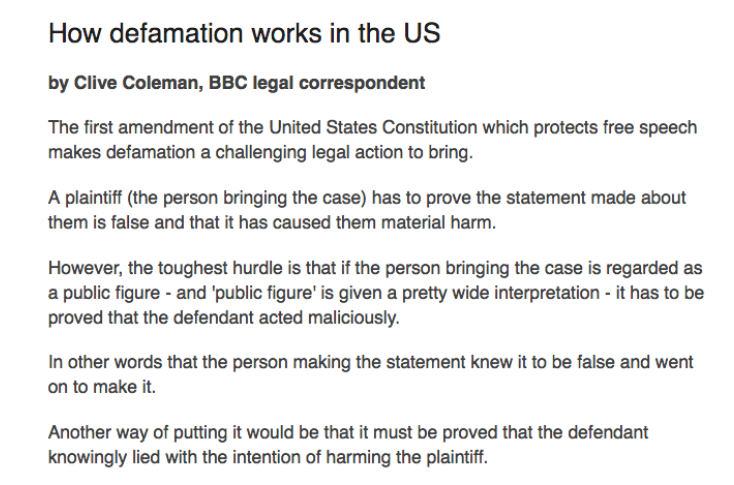

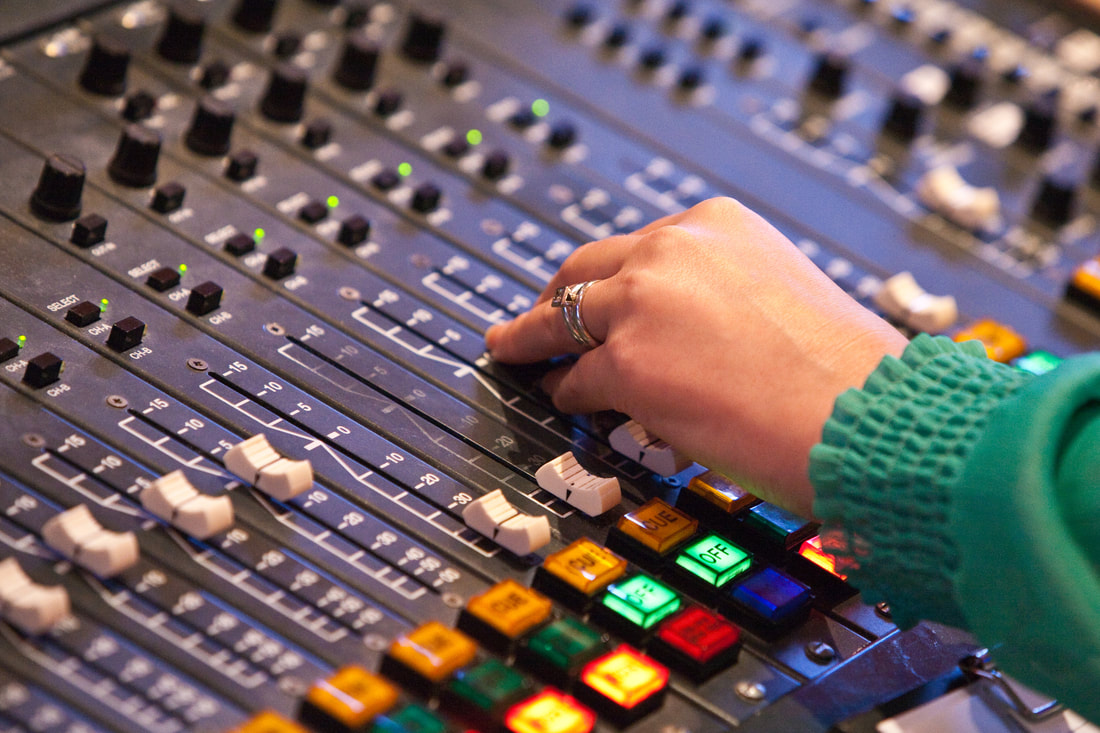
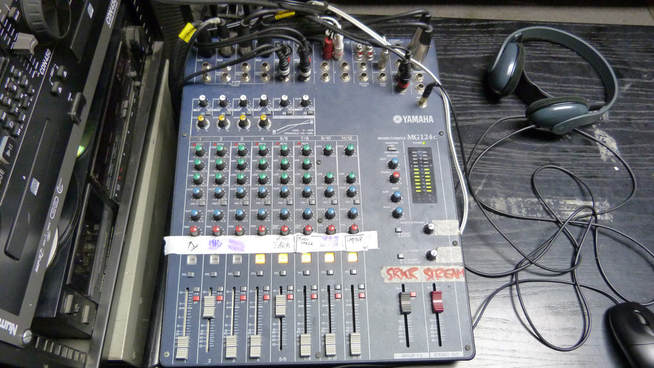
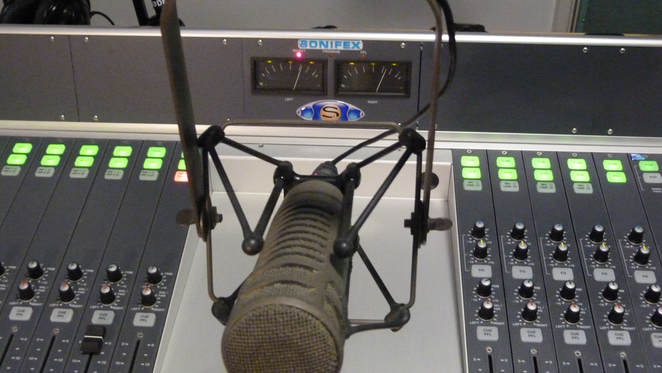
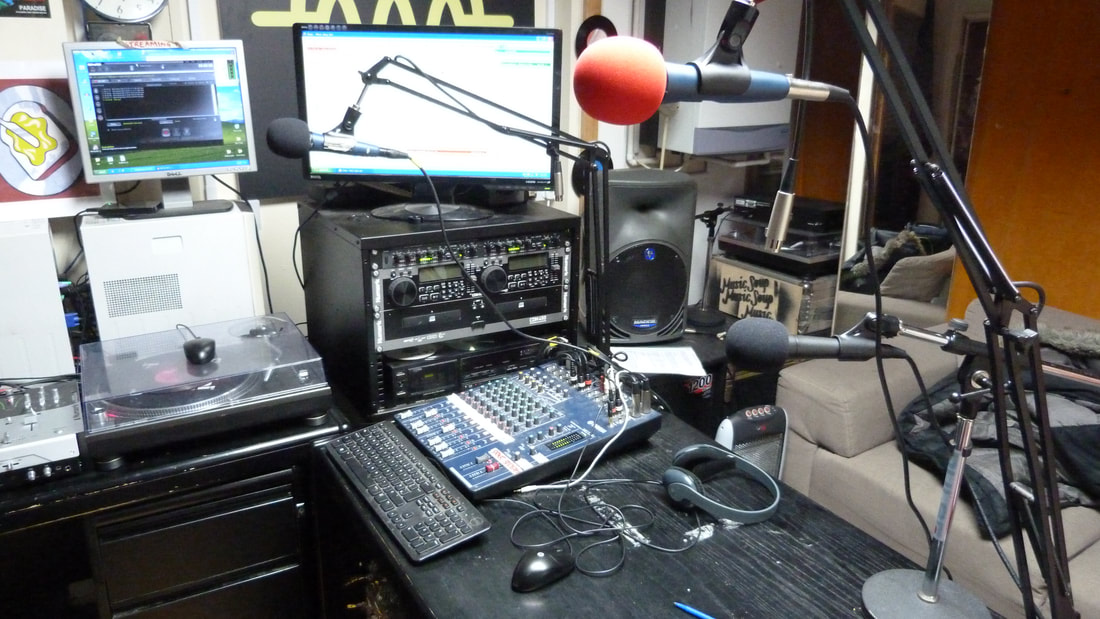
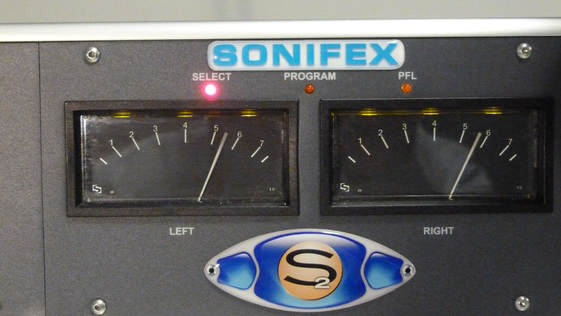
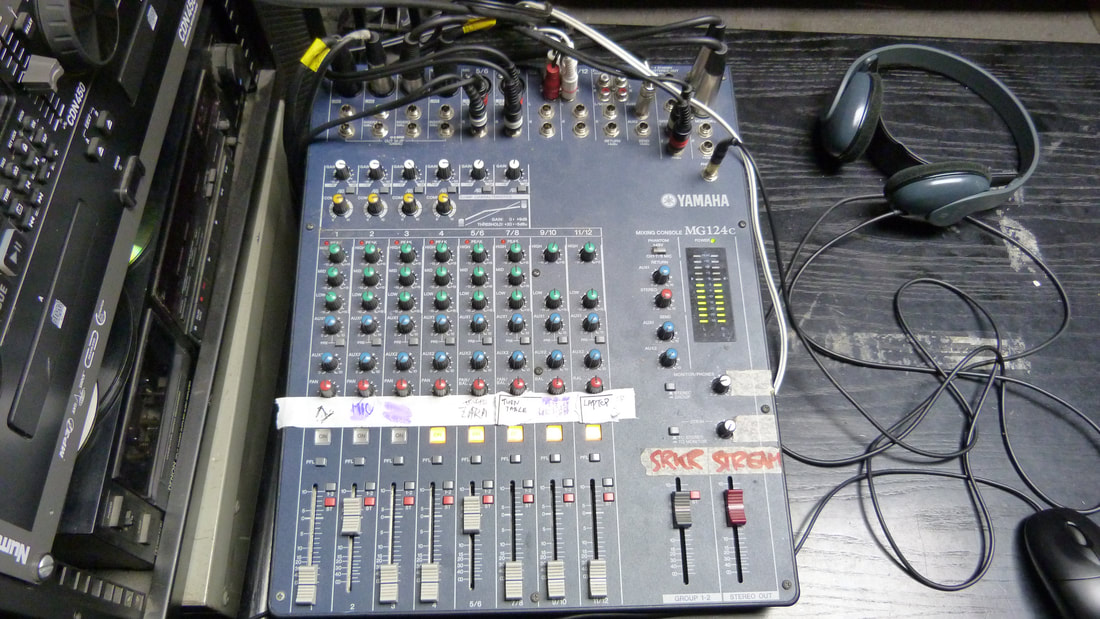
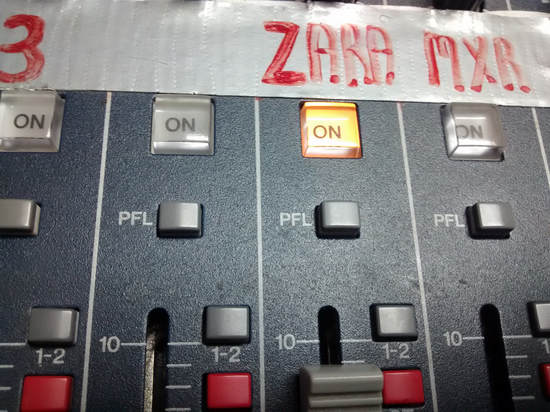
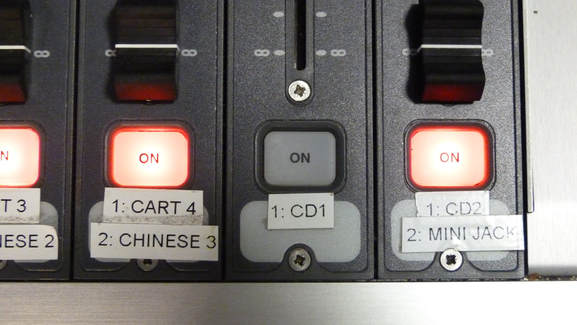
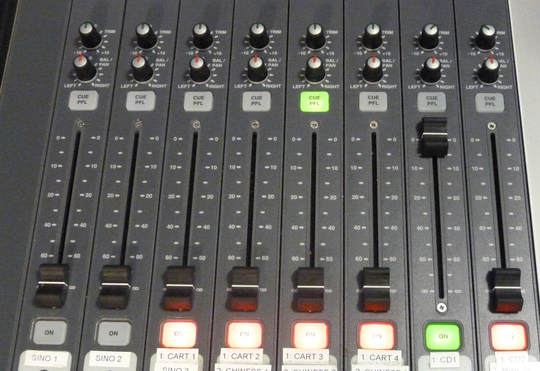
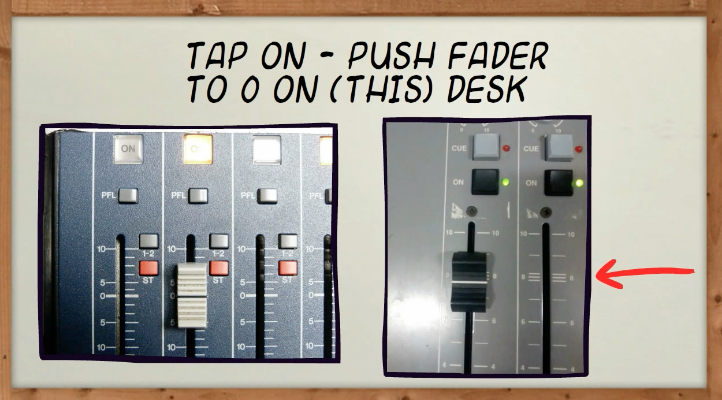
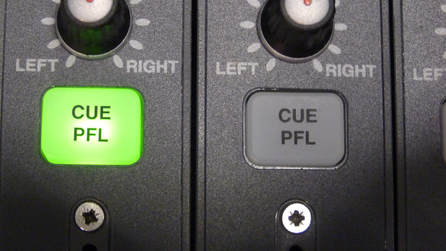
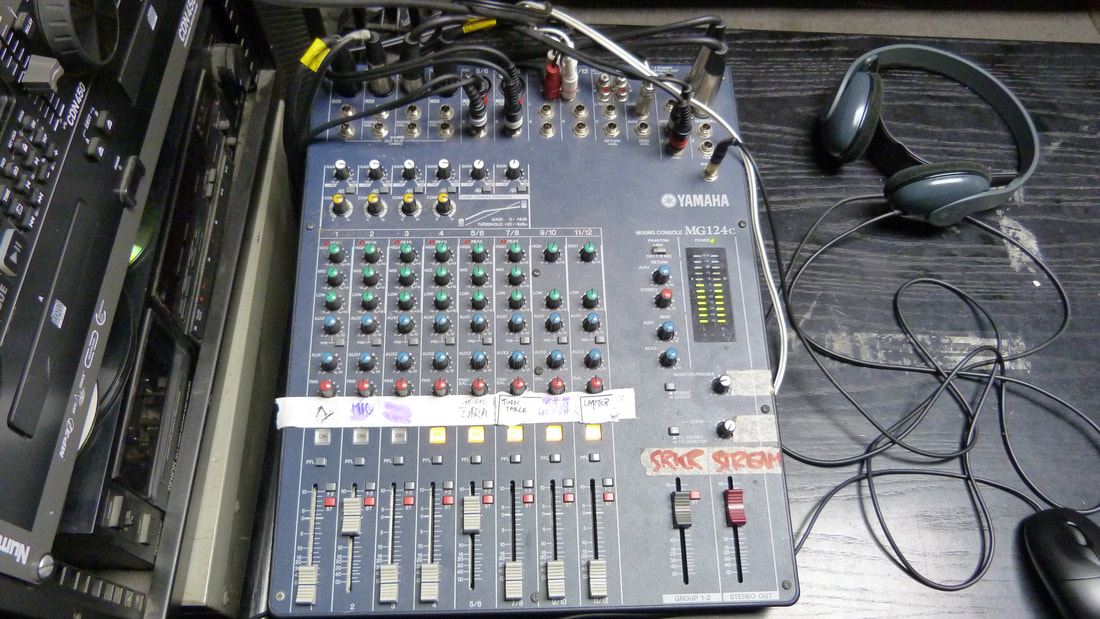
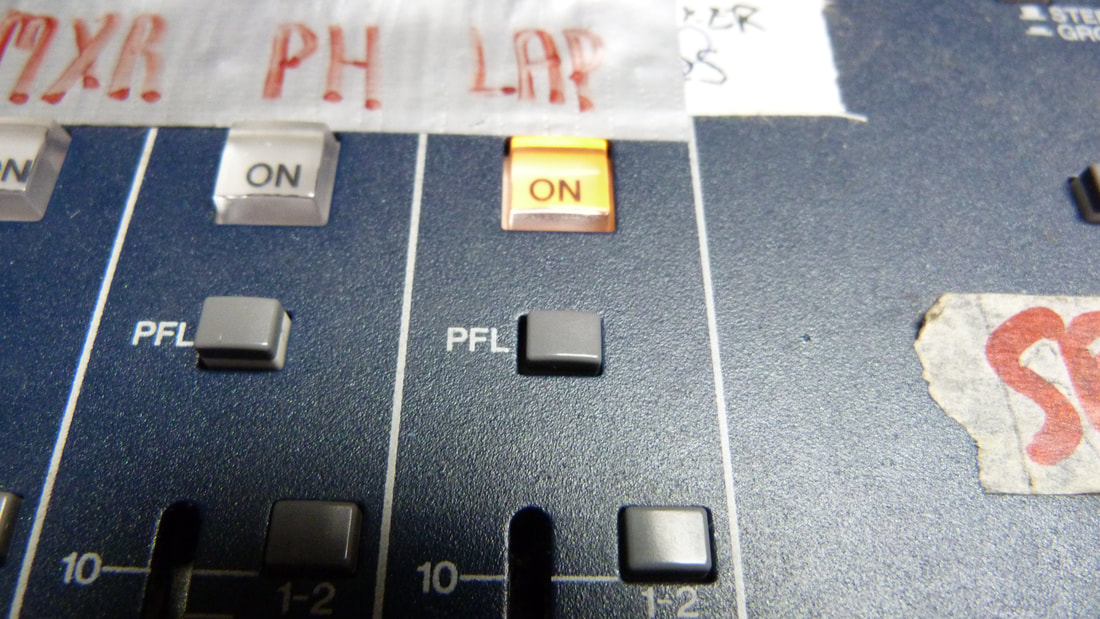
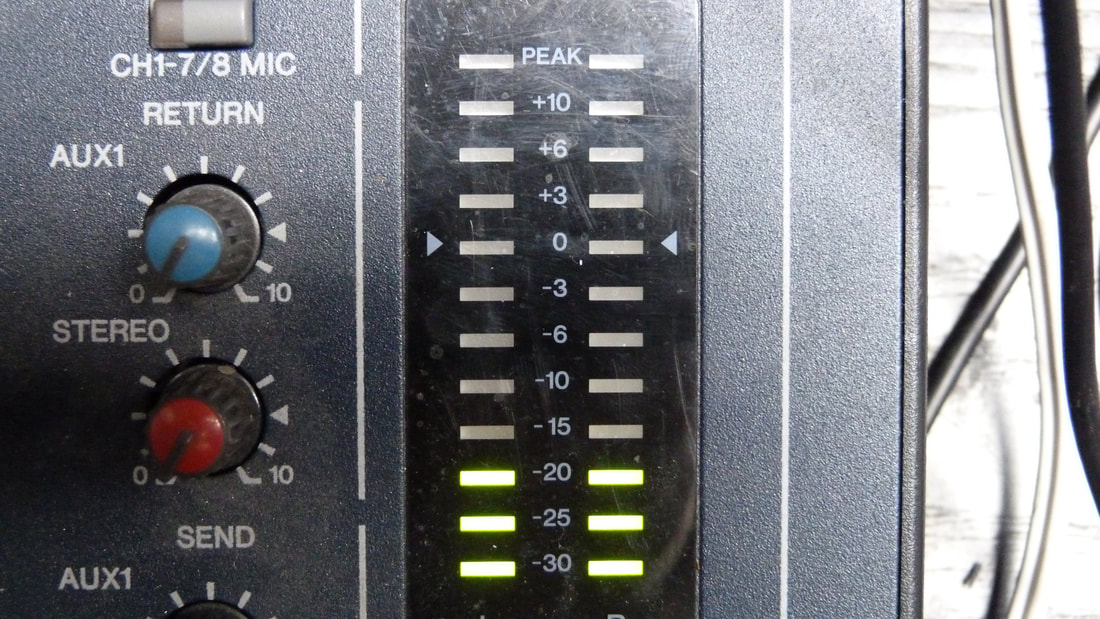
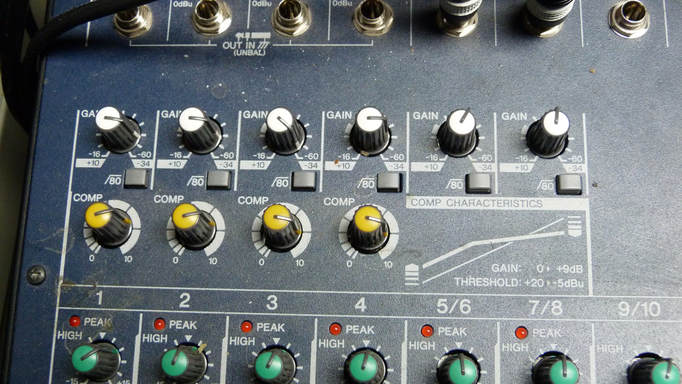
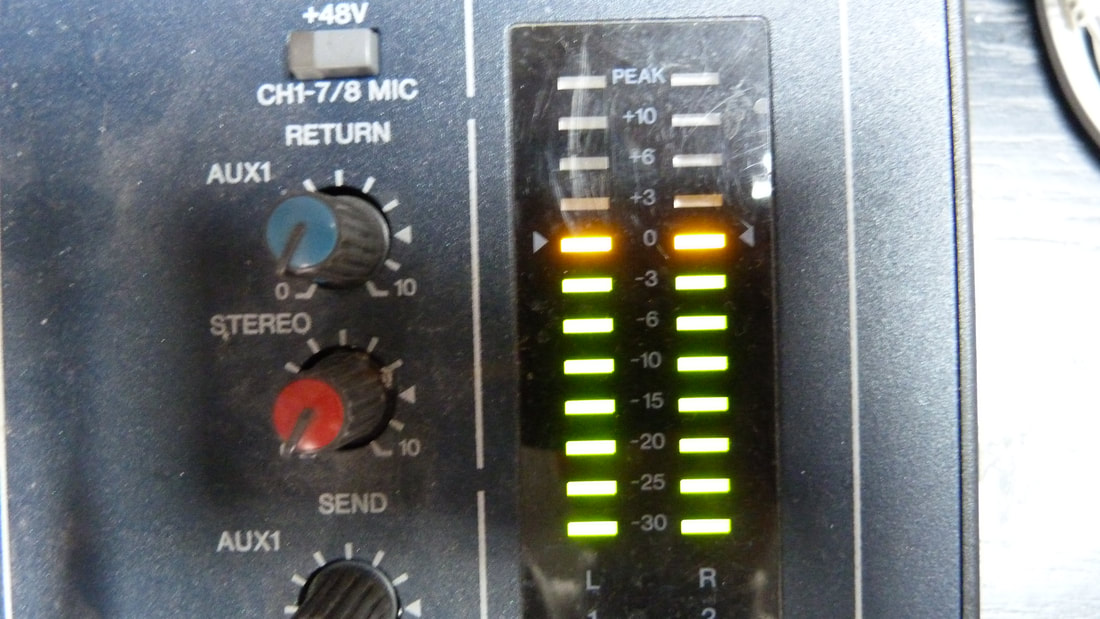
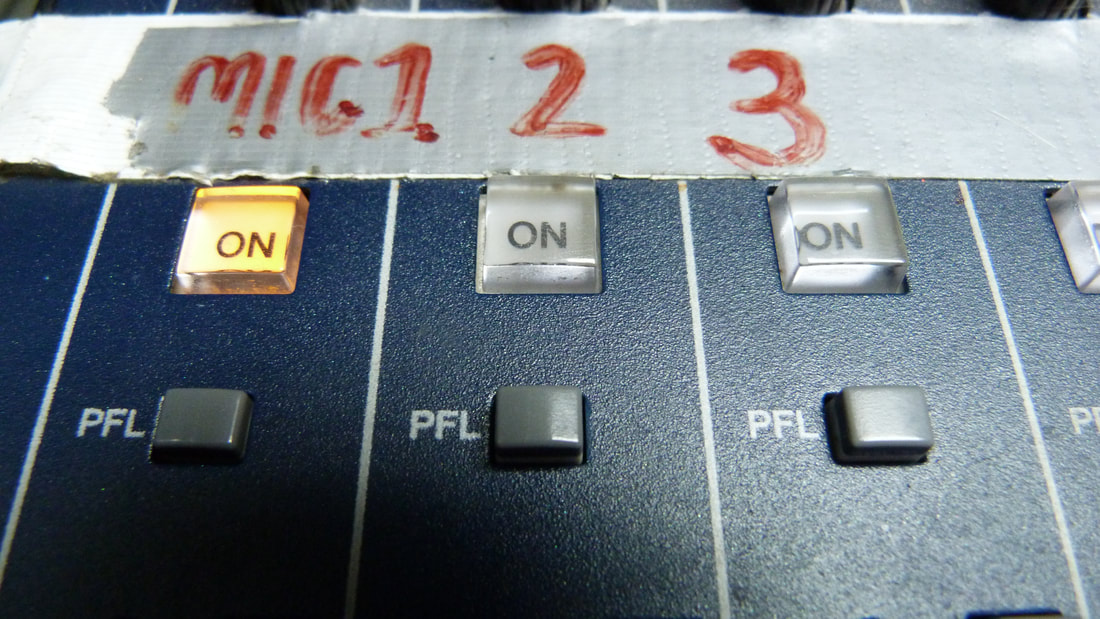
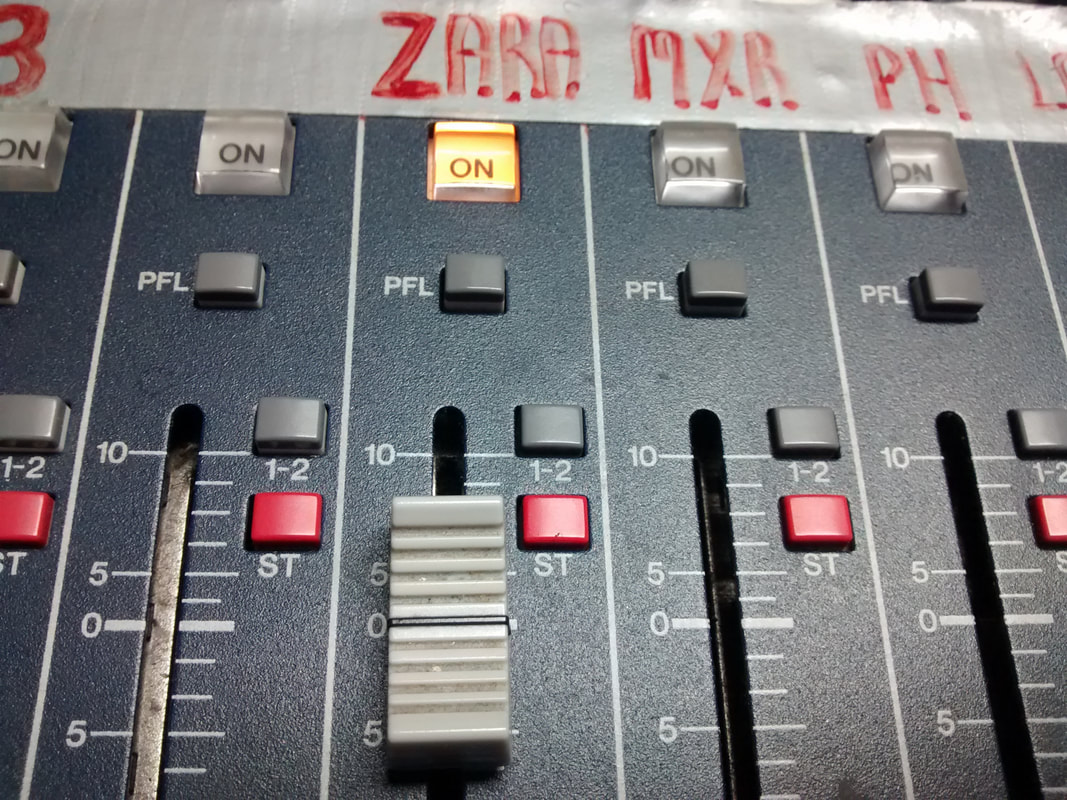
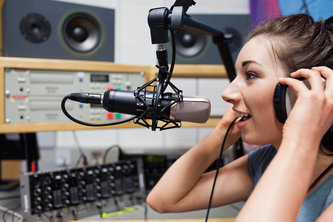

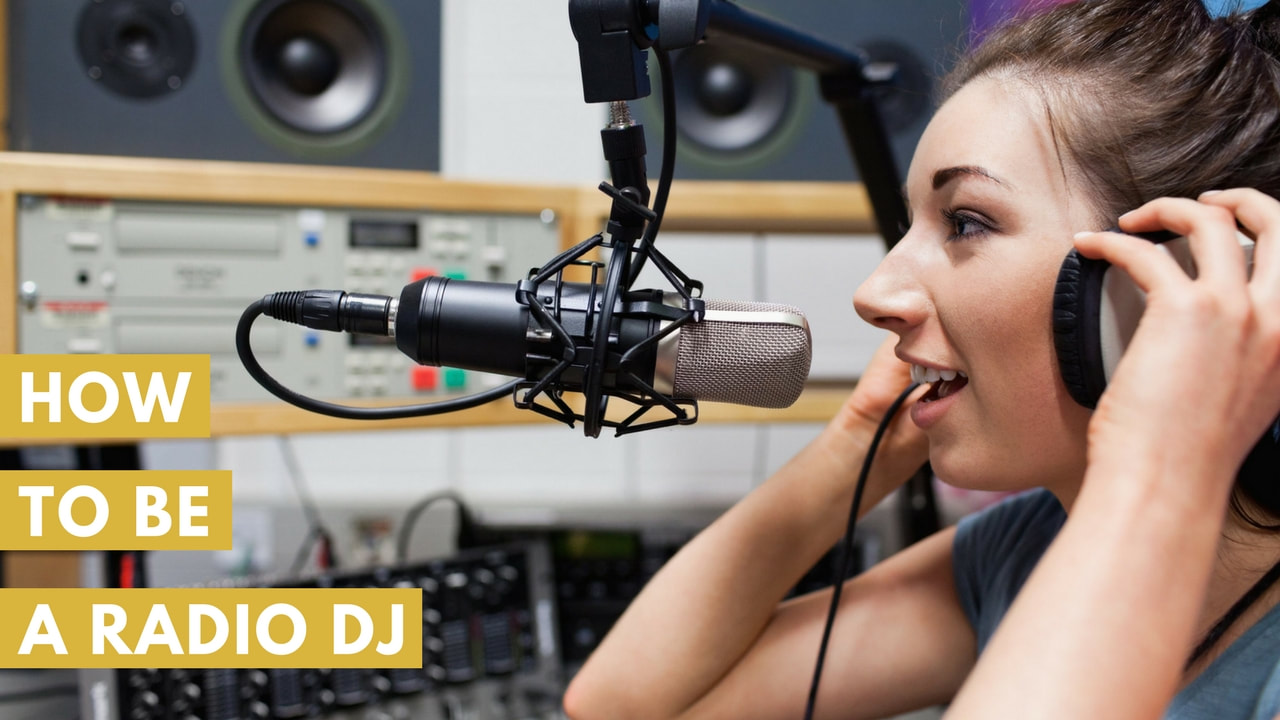
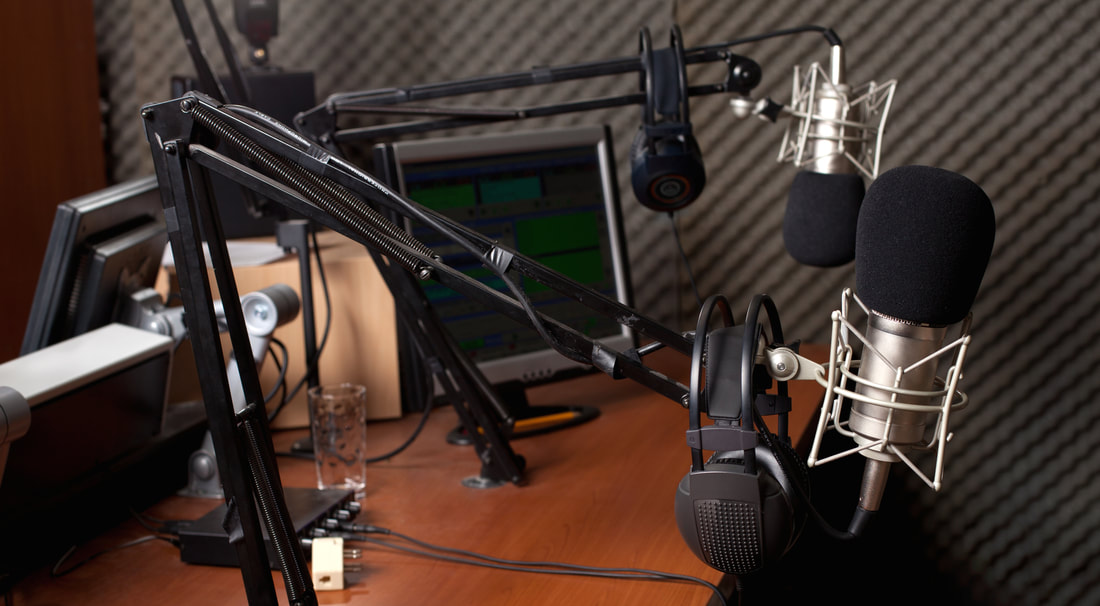
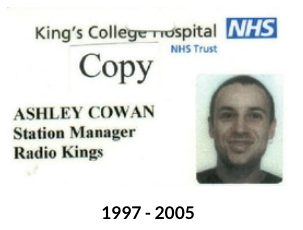
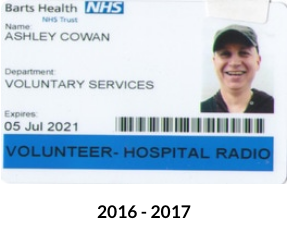
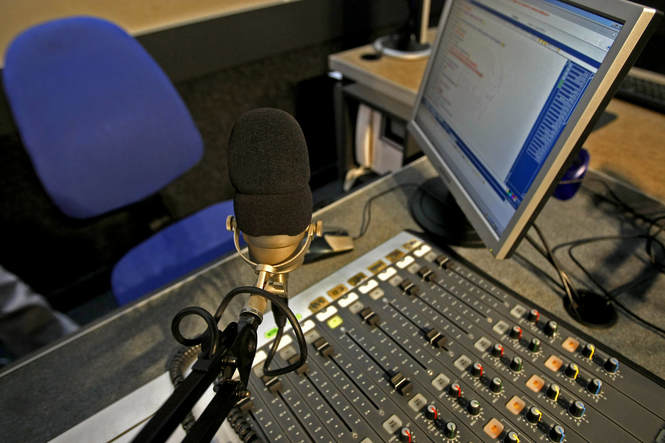
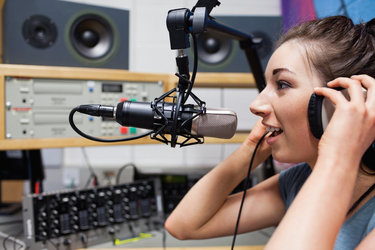
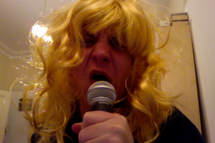
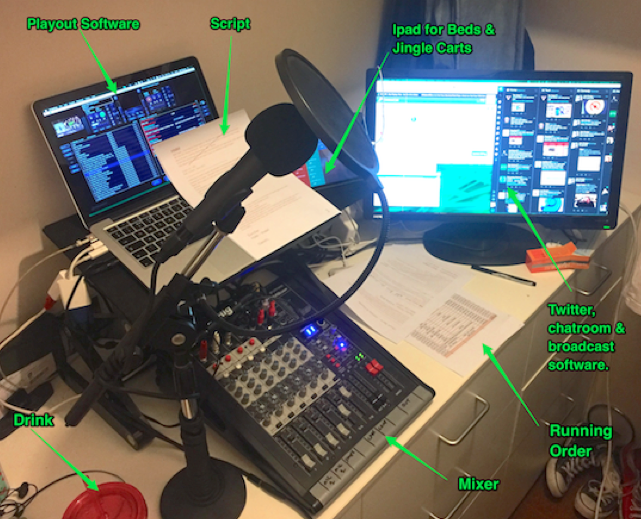
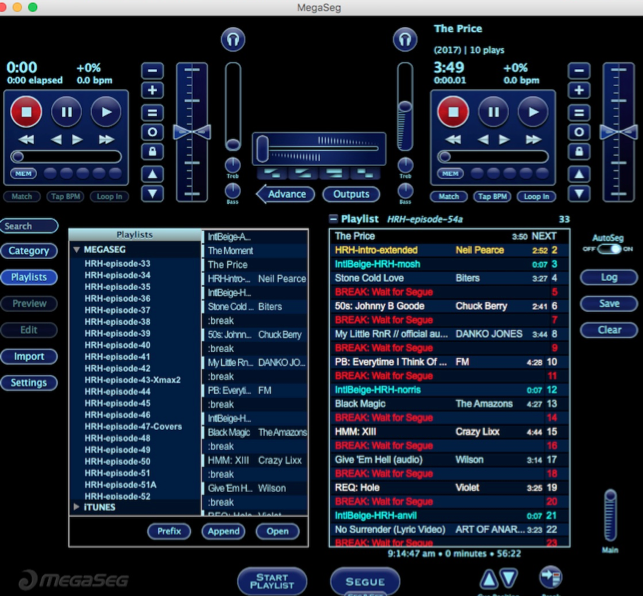
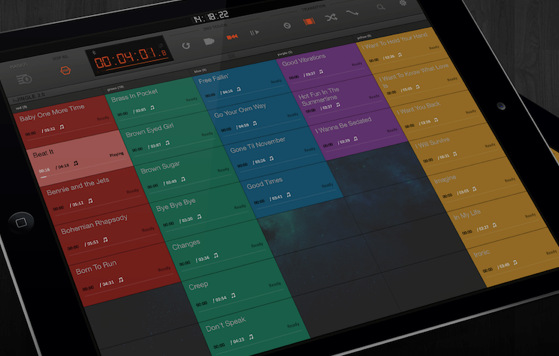
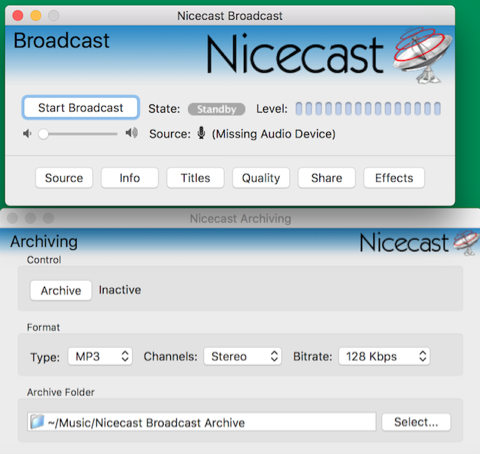
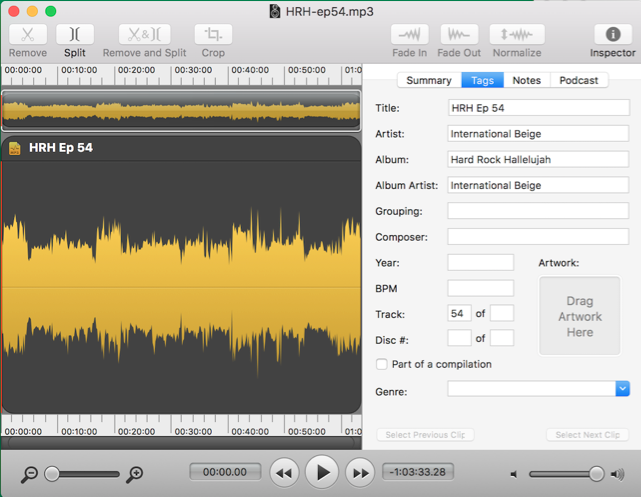
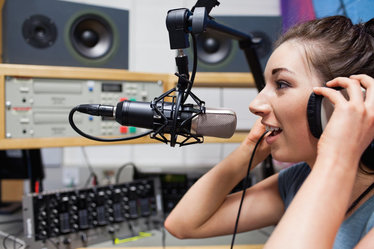

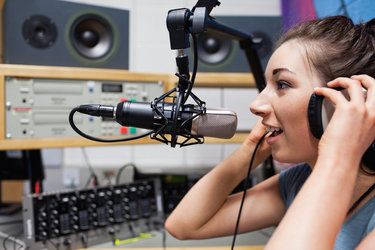

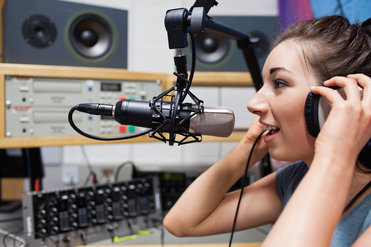
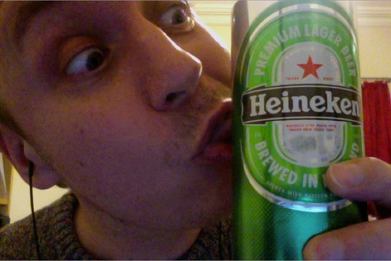
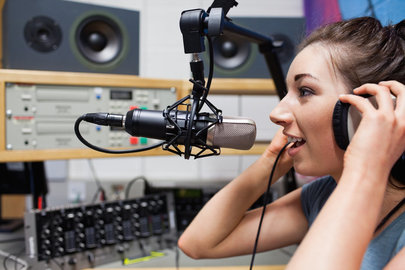
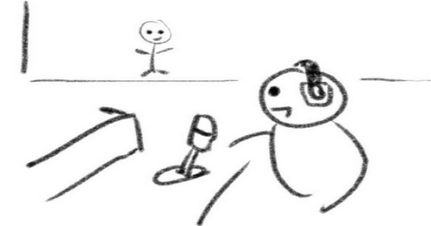
 RSS Feed
RSS Feed
